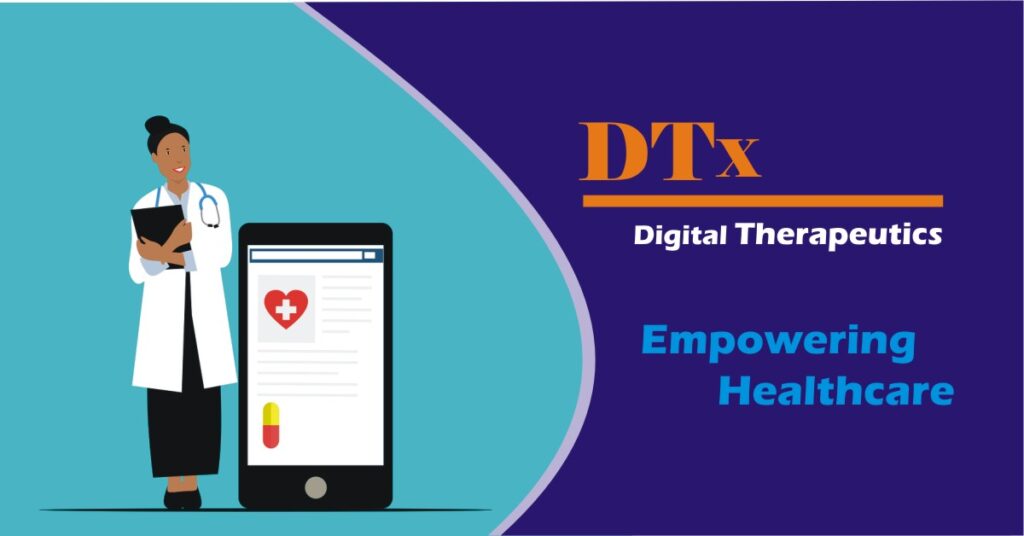What is Blockchain Technology?
Blockchain technology, has surfaced as a transformative force across various industries, including healthcare. In recent times, the healthcare sector has begun to harness the capability of blockchain in healthcare to overcome its longstanding challenges and pave the way for a more effective, secure, and patient-centric ecosystem. This article delves into the profound impact of blockchain in healthcare, exploring its operations, benefits, challenges, and the possible future landscape.
Understanding Blockchain Technology
At its core, blockchain is a decentralized, assigned digital document that records transactions and reserves them across multiple computers in a secure and tamper- resistant manner. This technology’s basic invention lies in its capability to ensure data integrity, clarity, and constancy without the need for intermediaries. Each block in the blockchain contains a cryptographic hash of the previous block, creating a chain of blocks that are naturally correlated.
Operations of Blockchain in Healthcare
- Data Interoperability and Exchange: One of the most significant challenges of blockchain healthcare is the fragmented nature of patient data across many providers and systems. Blockchain can enable secure and standardized data exchange, allowing patients and healthcare providers to have access and share medical reports seamlessly. This fosters better care collaboration, reduces medical faults, and enhances patient outcomes.
- Patient Identity Management: Blockchain offers a secure and tamper- proof result for managing patient details. Patients can have control over their personal health information and entitlement access to relevant parties, guarantying privacy while smoothing data sharing for treatment purposes.
- Clinical Trials and Research: Blockchain streamlines clinical trial processes by giving an immutable record of consent, data collection, and analysis. Experimenters can access a transparent record, expediting the medicine development lifecycle and assuring data integrity.
- Supply Chain Management: The pharmaceutical supply chain is tending to counterfeit drugs and inefficiencies. Blockchain can track the entire supply chain, assuring the authenticity of drugs and medical devices, preventing fraud, and optimizing inventory management.
- Telemedicine and Remote Patient Monitoring: Blockchain in healthcare enhances the privacy of telemedicine platforms and remote patient monitoring systems, securing sensitive health data and permitting patients to have control over who accesses their data.
Benefits of Blockchain in Healthcare
Blockchain technology offers a myriad of advantages to the healthcare sector, addressing many challenges and inefficiencies that have plagued the industry for times. There are some of the crucial benefits of using blockchain in healthcare.
- Data Security and Privacy: Healthcare records are sensitive and private, containing secret patient information. Blockchain’s cryptographic ways insure data security by encrypting transactions and granting patients control over who accesses their information. Unauthorized access, tampering, and data violations are minimized, enhancing patient privacy.
- Interoperability: The healthcare landscape frequently involves many providers and systems that do not seamlessly communicate with each other. Blockchain can produce a standardized platform for data exchange, enabling different healthcare entities to share information efficiently, leading to enhanced care collaboration and reduced medical violations.
- Transparency: Blockchain’s distributed record system provides translucency across the entire healthcare ecosystem. All authorized participants can view the same information together, reducing difficulties and enhancing trust among stakeholders. This transparency is particularly precious in managing supply chains and confirming the authenticity of drugs and medical devices.
- Data Integrity: Once data is recorded on a blockchain, it can not be altered or deleted without leaving a trace. This point ensures the accuracy and integrity of medical records, research data, and other critical information. This is particularly pivotal in maintaining the quality of clinical trial data and research findings.
- Reduced Administrative Burden: Smart contracts, self- executing code kept on the blockchain, automate many administrative tasks, similar as claims processing, billing, and verifying insurance content. This reduces the need for intermediaries, streamlining procedures and cutting down management costs.
- Effective Supply Chain Management: In the pharmaceutical companies, blockchain helps trace the entire supply chain, from raw materials to the end consumer. This prevents fake medicines, improves traceability, and enhances inventory administration, eventually assuring patient safety and the authenticity of drugs.
- Clinical Trials and Research: Blockchain simplifies and accelerates the clinical trial process. It provides a tamper- proof record of consent, data collection, and analysis, assuring the integrity of trial results. This translucency can boost exploration cooperation and lead to speedily medicine development.
- Enhanced Telemedicine and Remote Monitoring: As telemedicine gaining success, maintaining the security and privacy of remote patient data becomes critical. Blockchain provides a secure platform for telemedicine dealings, securing sensitive health data and easing secure remote patient monitoring.
- Decentralized Patient Identity: Traditional patient identification systems can be prone to crimes and security breaches. Blockchain in healthcare allows for a secure and decentralized patient identity administration system, reducing the threat of identity theft and assuring accurate patient identification.
- Global Data Sharing: In a world of accelerating globalization, blockchain can enablecross-border health data exchange securely. Patients can share their medical history and records with healthcare providers anywhere in the world, forming healthcare services more affordable and effective.
- Research and Innovation: Blockchain’s assured and crystal clear nature can nurture data sharing among researchers, leading to further comprehensive and cooperative medical research. This, in turn, can speed up medical invention and the discovery of new treatments.
- Immutable Audit Trails: Healthcare associations can maintain an immutable audit trail of all transactions and dealings. This point is particularly useful in compliance audits, assuring that associations adhere to regulatory conditions.
Challenges and Considerations
Incorporating blockchain technology into healthcare holds the pledge of converting the industry into a more patient-centric, effective, and secure ecosystem. While challenges stay, the possible benefits in terms of data integrity, interoperability, and improved patient care make blockchain a revolutionary tool for healthcare professionals and patients likewise.
- Scalability: Blockchain networks like Bitcoin and Ethereum have faced scalability issues, with limited sale processing capacities. Developing scalable blockchain results for healthcare remains a challenge.
- Regulatory Compliance: Healthcare is a largely regulated industry, and incorporating blockchain requires aligning with complicated regulations like HIPAA (Health Insurance Portability and Accountability Act) in the United States.
- Data Onboarding: Migrating existing healthcare data to a blockchain platform requires cautious planning to insure data perfection and privacy.
- Education and Adoption: Healthcare professionals and patients tend to be trained about blockchain’s benefits and application to encourage wide adoption.
The Future Landscape
The capability of growing of blockchain in healthcare is immense, but realizing this potential requires cooperative efforts from technology inventors, healthcare providers, controllers, and patients. As the technology matures and overcomes its ongoing limitations, we can fantasize a future where patients have flawless access to their health histories, medical research advancements at an accelerated pace, and healthcare providers operate within an effective and secure ecosystem.
Conclusion
Blockchain technology has transcended its cryptocurrency sources to emerge as a important tool in revolutionizing healthcare. With its capability to improve data security, interoperability, and transparency, blockchain is braced to reshape how healthcare data is managed, shared, and used. As the industry continues to embrace blockchain’s possibility, we stand at the precipice of a healthcare metamorphosis that promises bettered patient care, streamlined procedures, and new avenues for medical invention.
You May Be Interested In

